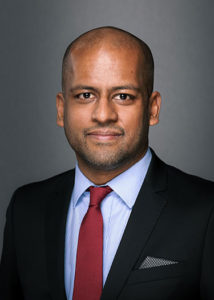Before COVID, pro bono cases at our small firm blended into the calendar with the same flow of other litigation matters—they entailed the same obligations, fed on the same hope, triggered the same pressures, and experienced roughly the same life-cycle from complaint onward. As they should, to be sure, given that zealous advocacy is due to all clients without exception.
COVID, however, with its pace and indiscriminate aggression, altered the fundamental physics of our pro bono cases. Indeed, from the initial flares of angst at the end-nodes of our professional and social networks, to the weeks of lockdown and uncertainty, COVID has been a uniform event afflicting our individual clients, our local businesses, and the multi-national corporations we represent in the pharmaceutical industry. Late March 2020 saw a surge in calls from retail tenants unable to make rent payments and independent contractors with suddenly-vulnerable services agreements. We continue to help many of them on a pro bono basis, and committed to representing more under-served Nevada clients following the George Floyd murder, especially citizens of color and indigent military veterans.
Those decisions and the resulting engagements emit a hopeful energy and pull from us passion anew. These cases have nourished the ideals that drew us to this profession in the first place, including of being a good neighbor in times of need and equal justice for all, and they have had an uplifting and communal vibe and fiber to them. Perhaps this is due to both the gravity of two back-to-back cataclysmic social events and the loss, anguish, and introspection they have foisted upon the whole of the American family, sparing none.
Our recent legal aid cases have made me feel more free—and yet also more conflicted; more serene—and yet more emotional; more powerful—and yet also frail. Above all, they have made me more appreciative of the trust society has placed in our hands as advocates. And I hope it endures.
About the author:

Mo Iqbal, Esq. maintains an extensive litigation practice and a separate pharmaceutical/regulatory practice, where he helps initiate clinical trials addressing key public health issues, including opioid addiction and chronic pain.
This article was originally published in the “Appellate Practice” issue of Communiqué, the official publication of the Clark County Bar Association, (September 2020). See https://clarkcountybar.org/about/member-benefits/communique-2020/communique-september-2020/.
© 2020 Clark County Bar Association (CCBA). All rights reserved. No reproduction of any portion of this issue is allowed without written permission from the publisher. Editorial policy available upon request.
